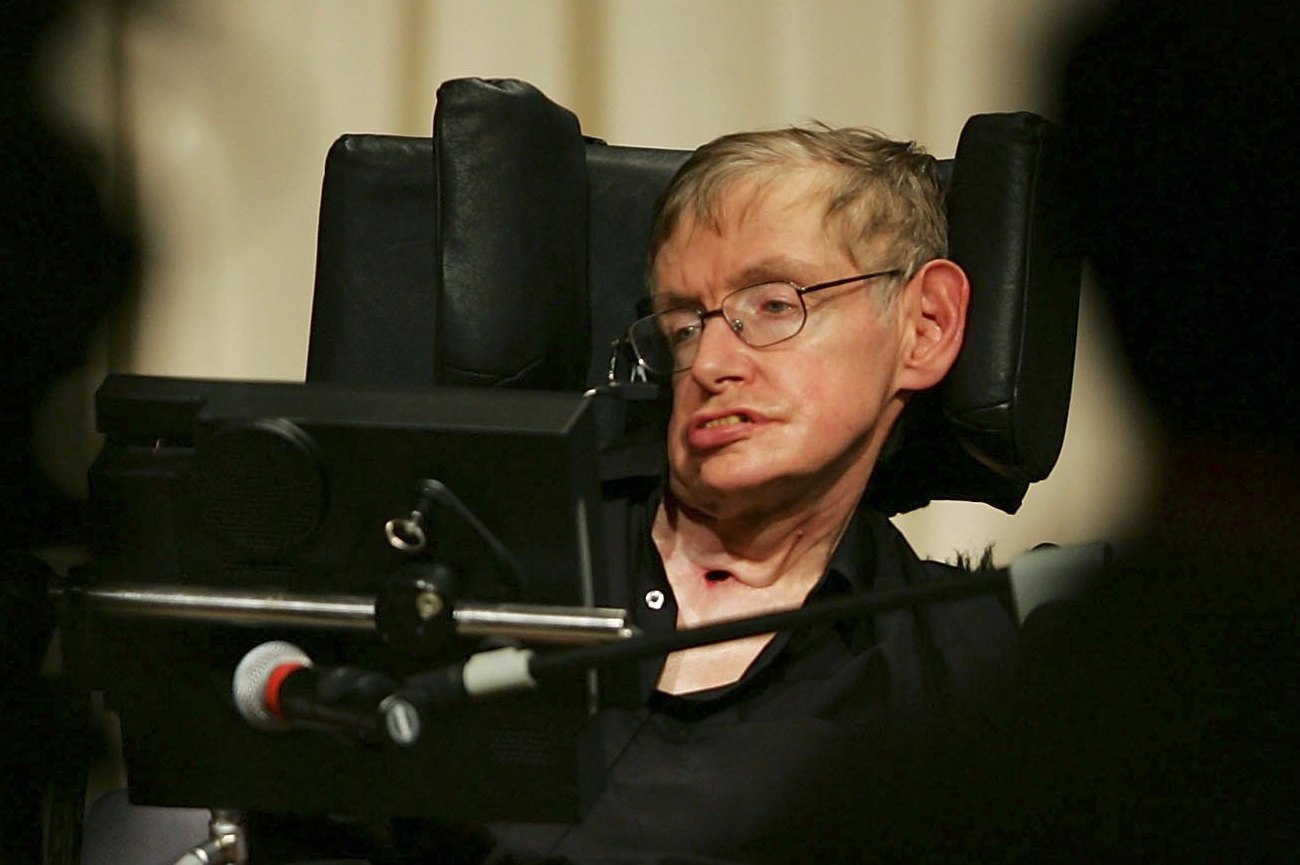Stephen Hawking

Biography of Stephen William Hawking
Date of Birth: 08.01.1942
Stephen William Hawking - English theoretical physicist who made a name for himself through his research in astrophysics, particularly the theory of black holes and the popularization of scientific knowledge.
In his research, he investigated the theory of the origin of the universe from the Big Bang as well as the theory of black holes. He postulated that black holes with lower mass lose energy by emitting Hawking radiation through their event horizon and ultimately 'die'.
Place of Birth. Education. Stephen Hawking was born on January 8, 1942, in Oxford, where his parents moved from London to escape the bombing raids of German planes. His father, Frank Hawking, was a researcher at the medical center in Hampstead, and his mother, Isobel Hawking, was his secretary. In addition to Stephen, two younger sisters (Phillipa and Mary) and an adopted brother, Edward, were raised.
In 1962, Stephen graduated from the University of Oxford (B.A.), and in 1966 he obtained his Ph.D. at Trinity College, University of Cambridge, with his dissertation on 'The Properties of Expanding Universes'.
Scientific Career. From 1965, Hawking worked as a researcher at Gonville and Caius College, University of Cambridge. From 1968 to 1972, he was at the Institute for Theoretical Astronomy, from 1972 to 1973 at the Institute of Astronomy, from 1973 to 1975 at the Institute of Applied Mathematics and Theoretical Physics. From 1975 to 1977, he taught gravitational theory, and from 1977, he was a professor of gravitational physics, and from 1979, a professor of mathematics.
1974-1975, Hawking was a fellow at the California Institute of Technology. He referred to himself as a mathematics professor who had never received any mathematical education after high school. In his first year of teaching at Oxford, he was two weeks ahead of his class.
In 1974, Hawking was elected a member of the Royal Society. In 1979, he became the Lucasian Professor at the University of Cambridge, a position he held until 2009.
Illness. He suffered from a motor neuron disease, the first symptoms of which he showed at the age of 21. Initially, they were mild: slight clumsiness and a few unexpected falls. The diagnosis was a major shock but helped him clarify his future:
“Although a big question mark hung over my future, I was surprised to discover that I suddenly had more joy in life than before.”
After his first diagnosis in 1963, doctors gave him only two and a half years to live, but the disease did not progress as quickly, and he began using a wheelchair only at the end of the 1960s.
In 1985, Stephen Hawking became seriously ill - he developed pneumonia. After a series of operations, he underwent a tracheotomy and lost the ability to speak. Professor Hawking could only point to a letter board for a while, when someone pointed to the desired letter. Computer expert Walt Woltosz from California learned about Professor Hawking's condition and sent him his self-developed program called “Equalizer,” which allowed him to select the needed words from a menu system by using a switch in his hand.
The only mobility he had left was the index finger of his right hand. Later, only mobility remained in the facial muscles of his cheek, where a sensor was attached. With this sensor, he could control the computer, which allowed him to communicate with others.
Despite his serious illness, he led an active life. In 2007, he took a parabolic flight aboard a special airplane, and in 2009, a flight into space was planned, which, however, did not take place.
Scientific Achievements. One of the most influential and well-known theoretical physicists of our time, founder of quantum cosmology. Known for his work on black hole research, theoretical cosmology, and quantum gravity.
The main research area of Hawking is in cosmology and quantum gravity. His most significant achievements include:
- the application of thermodynamics to describe black holes;
- the development of the theory in 1975 that black holes 'evaporate' through a phenomenon known as Hawking radiation;
- in 1971, Hawking proposed the concept of microscopic black holes within the framework of the Big Bang theory, whose mass could amount to billions of tons while occupying the volume of a proton. These objects were at the intersection of relativity theory (due to their mass and gravity) and quantum mechanics (due to their size).
- On July 21, 2004, Hawking gave a lecture in which he presented his view on solving the black hole information loss paradox.
Books and Science Popularization. He was active in writing books and popularizing science. His most famous works are: 'A Brief History of Time', 'Cosmic Time', 'The Big Bang and Other Hot Tales'.